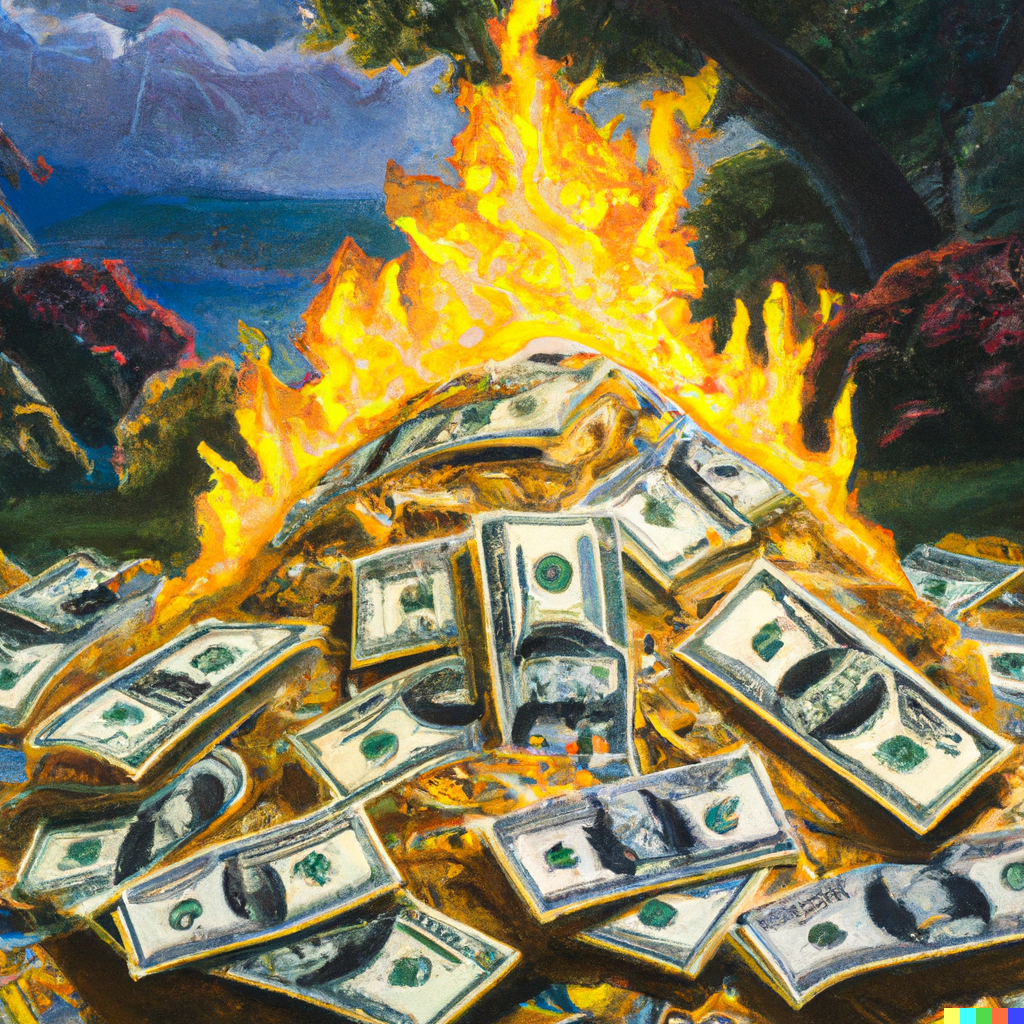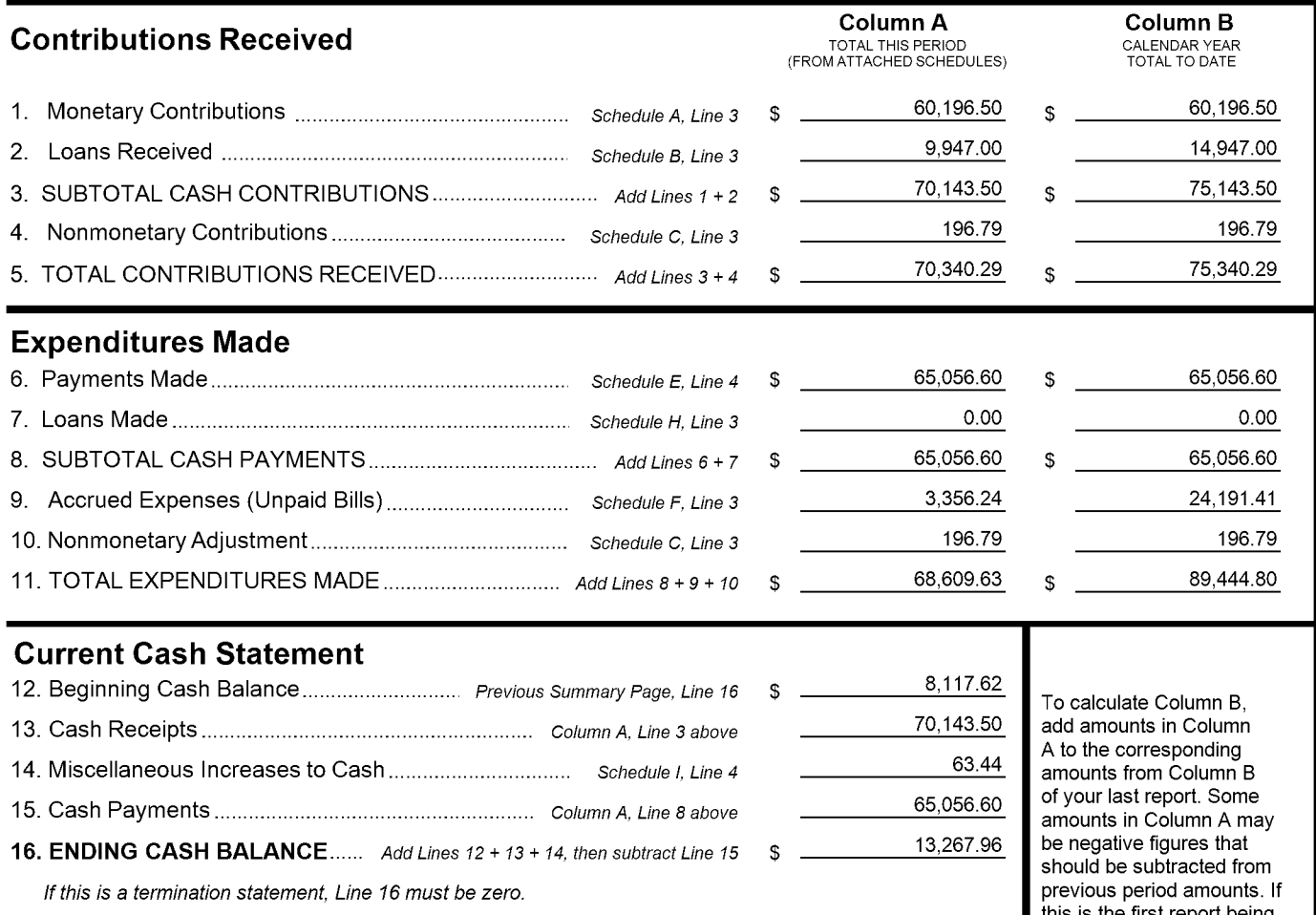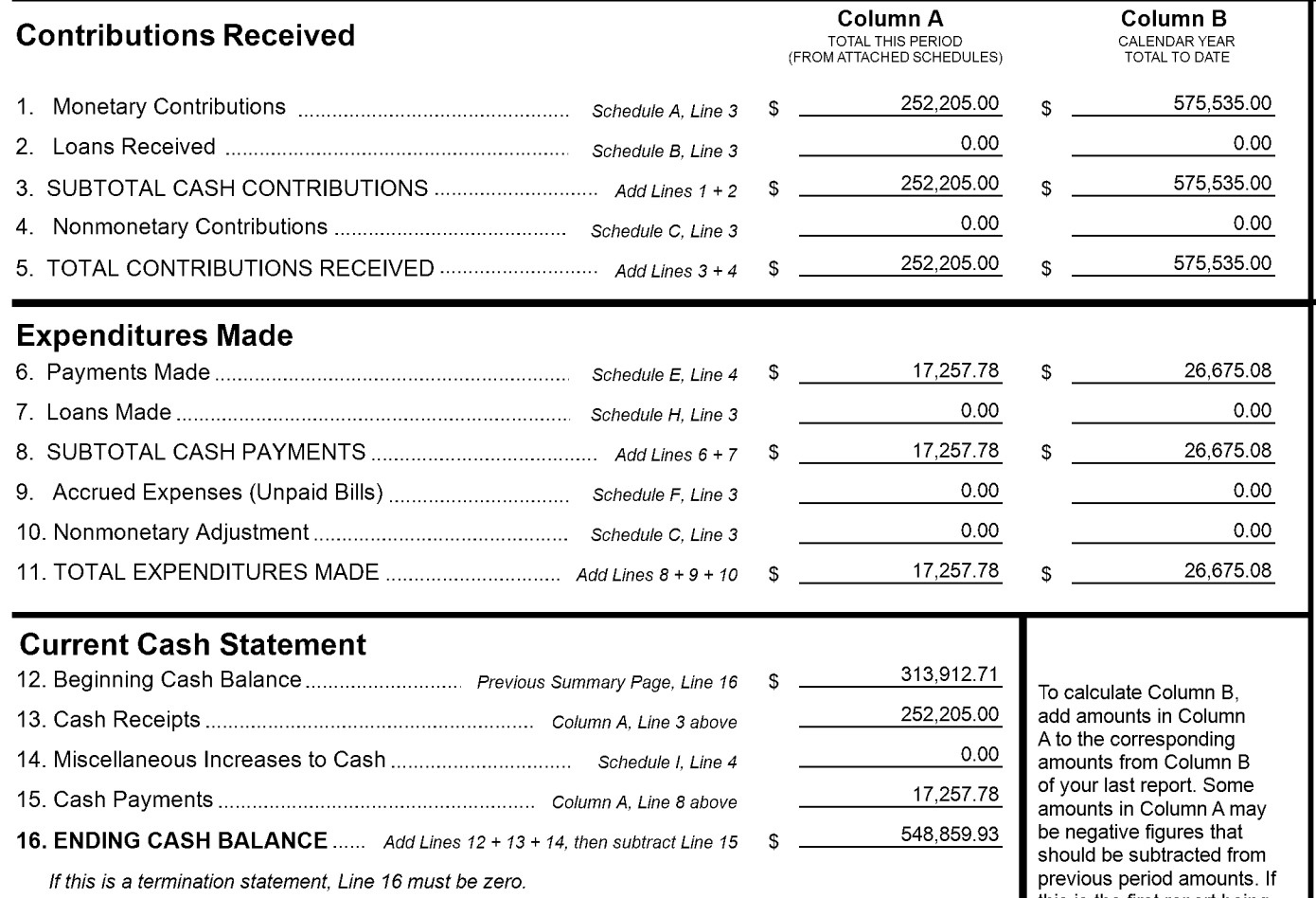Please don't (immediately) spend all your campaign money

There is a tragedy that plays out from time to time in politics, and it nearly breaks my heart every time I see it.
A hardworking, dedicated candidate will launch their campaign early. In this example, let's say a year head of time.
They'll work tirelessly raising money. They'll put up an impressive number! Maybe they raise $50,000 (a lot of money relative to many local campaigns).
"Wow!" I say to myself. That's an impressive number. They must be a credible candidate.
Then I keep reading their campaign finance report. And then I see it.
Total Expenditures: $45,487.
So now this candidate has around $5,000 left in their account.
What did they spend their money on a year before the campaign?
High-paid consultants. Newspaper ads. Campaign staffers. Expensive office space.
All of these are expenses that don't translate into votes. Mainly because they're expenditures made months before people even realize an election is happening. But also because most of the money isn't going toward voter contact. It's going toward recurring overhead.
Now the candidate who had such a strong start is basically dead in the water. He might as well have raised only $5,000, because outside observers, potential endorsers, and prospective donors are all going to treat his campaign as one that only raised $5,000. The candidate basically killed all their momentum by failing to keep their powder dry.
As a real-life example, here is a Terrible, Horrible, No Good, Very Bad Campaign Finance Report report that nearly perfectly encapsulates what I'm describing:

Nearly two months before the election, this candidate had basically spent all their money (they only have around $13,000 left on hand). As you can imagine, they did not prevail on Election Day.
Early in your campaign, your top priority should be maximizing your "cash on hand" in your campaign account.
You do this by raising more money, and spending less money.
The reason you do this is because it ensures you have as much money as possible for voter contact, when the time comes to start contacting voters.
The other reason is because you will need more support as the campaign goes on. You'll need endorsements and you'll need more donations. Endorsers and donors want to have some confidence they are on the winning side. They don't want to invest money or political capital in a likely loser. Donors in particular want to know their money is spent wisely and effectively.
And so a larger cash-on-hand balance will show strength and viability. And being able to restrain yourself from overspending is another green flag for prospective donors and endorsers.
Here is a real-life example of a Very Good Campaign Finance Report, which was filed about a year out from their election:

They basically had a burn rate of about 5%, which one could argue may even be too conservative (but I won't). They won their election.
The first phase of your campaign – probably the majority of your campaign – should be the "money raising" phase. The very last part – the 45-60 days before the (local) election – should be the "money spending" phase.
There are of course certain things you will have to spend money on early. A treasurer is probably a good expenditure, since having one will keep you compliant and everything accounted for. If you absolutely need to hire a political consultant, you should try to work out a contract where you can hire them early, but backload their payment. But until you start spending money, you don't really need a political consultant.
If you need help, try to enlist volunteers. Ideally, your campaign has support from friends and family. And hopefully that support is strong enough where they are willing to give you some of your time to do the things that you were planning to pay people to do.
And beyond hiring the people you absolutely feel you must hire, the vast majority if your money should be spent on voter contact.
That means mail, digital media, lawn signs, door hangers, voter lists, and other expenses that have as clear of a line as possible from your campaign account to voter's eyeballs.
Voter contact is what wins you campaigns. If you have no money by the time the voter contact phase begins, you probably aren't winning your campaign.

Member discussion